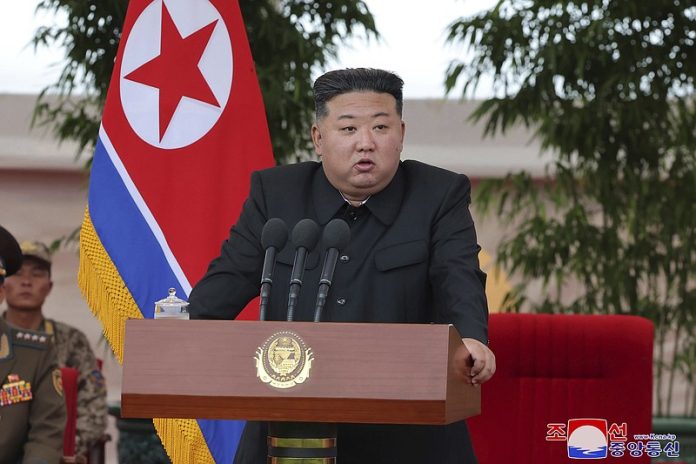Pyongyang to manage the aftermath of the floods on its own, which have left many regions close to China in ruins.
Severe rainfall at the end of July resulted in 4,100 homes, 7,410 acres of farmland, and many other public buildings, roads, and railways being submerged in the northwestern city of Sinuiiju and the adjacent city of Uiju. While Pyongyang has not disclosed any casualty figures, it has accused officials of failing to prevent the disaster.
In light of the situation, Kim Jong Un has instructed officials to transport thousands of residents affected by the natural disasters to the capital to ensure they receive adequate care: 15,400 individuals, including women, children, the elderly, and disabled soldiers, as reported by the official Korean Central News Agency.
KCNA underlined that Kim made these remarks during a two-day visit to the northwestern city of Judo on Friday, where he met with flood victims and discussed recovery efforts. According to the findings from this visit, it will take between two to three months to restore the impacted areas.
Additionally, North Korea has stated that it will not seek help from other countries for flood recovery. Previously, its allies Russia and China offered humanitarian assistance, but Pyongyang declared this unnecessary, claiming it has devised its own methods to address the destruction.
In addition to traditional allies and international aid organisations, South Korea also offered assistance. However, Pyongyang refused the offer, instead issuing the statement accusing Seoul of exaggerating the extent of damage and losses as a result of the floods. It also condemned the South Korean media for their claims that the flood damage and death toll in the North were likely worse than reported by the state-run media, and described these claims as a defamatory campaign and serious provocation.
